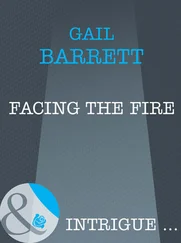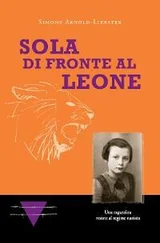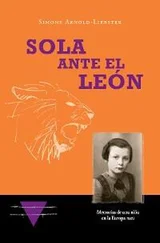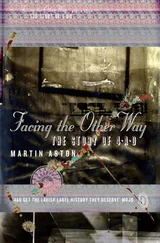“First I want another piece of cake,” demanded Angele. And she got it! My mother would have turned a deaf ear to me had I asked for it that way! “Ladies never say ‘I want...,’” Mum told me, “They say ‘I would like.... ’”
The stairs to the attic were in a corner of the house. To the right, in the attic, some hay was stored. To the left, just above the dining room, was the chest with all the precious souvenirs with which we could play. Voices, cigarette smoke, and the smell of coffee rose up to us through the floor. We emptied a part of the trunk that had old dresses, and we played with cups and plates from the last century.
We heard Grandma’s voice from below: “If we were Germans, we wouldn’t have any strikes! On the other side of the Rhine River, no one strikes!”
“Remember,” Grandpa answered his wife, “when Adolphe’s mother was a leader in the very first socialist strike, we were Germans.”
“That was before the Great War, but now, under Hitler’s leadership, Germans have work and good pay. They are prosperous.”
The rain returned, hammering on the roof. Downstairs they drank more coffee and some liquor—homemade sweet wine for the women but a strong drink for the men.
Grandma started complaining again. “Adolphe, it’s because of the French and their allies that German money has lost its value, not because the Germans are lazy! The French are lazy,” she asserted. “They are slow, unorganized . . .” She was talking and talking—only there was no argument because no one replied.
“Mother, it would be fairer of you if you read other newspapers also, not only one kind that speaks for Germany,” someone said.[3]
“Simone! Angele! Come down from the attic. It’s not raining anymore.”
Someone suggested that we take advantage of the sunshine. We all went out. But as soon as we came to the crossroad, Grandpa, looking up to the mountain top, said, “We’d better stay near the house.”
We walked up toward the end of the meadow, where Uncle Germain had installed a wooden bench and planted three pine trees at the edge of the cliff.
It was too wet for anyone to sit down, but from that place we could see the whole valley: Krüth, where Dad was born; Oderen, our village; Fellering, with its two churches—the Catholic church in the middle of the village and, at the outskirts, a Protestant church.
I asked Grandma what was the difference between the churches. “Protestants are enemies of Catholics.”
“Girls, you’d better go on your way.” Grandpa pointed to the violet-colored clouds.
“Yes, and you see that fog?” added Grandma. “It’s coming up—that means that it will come down again as rain. If you hurry, you can catch the earlier train and avoid getting drenched.”

The first thing Mother did when she arrived home was to cut some flowers from our garden “to put life in the place.” Red and yellow dahlias in the gray and blue Alsatian clay vase started our city life on a familiar note again.
“Simone, let’s prune the petunias on the balcony.”
“Mum, look! My sugar is gone!” I had left a sugar cube on the balcony before we had gone to Grandma’s.
Mother smiled. “Did the stork take it?”
“Yes,” came the answer from the other balcony. The voice belonged to one of our neighbors—Mrs. Huber—who added, “They’re gone. You’ll have to wait for your little sister or little brother. The stork will return in the spring and may bring a baby for you.”
Here in Mulhouse, the storks bring the babies, but, in Wesserling, babies choose their mothers by hiding in a big cabbage. But here in Mulhouse, cabbages never have babies, they only have worms! I knew a baby would come. I was sure of it because I had chosen the best mother in the world! I wanted a baby brother or sister so badly.
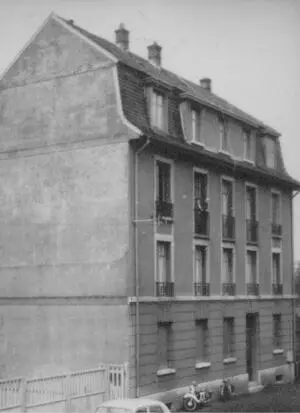 No. 46, Rue de la mer Rouge
No. 46, Rue de la mer Rouge
Once in a while, other children came around. Mr. Eguemann, a neighbor, had two grandchildren who visited sometimes. “Take the dog downstairs and play with them,” Mum would say. “They can be your younger brother and sister.”
But I wasn’t comfortable with them. Their grandfather made mean eyes toward me every time he saw me, ever since the day I had caught him stealing. It was early one morning. Mother had asked me to bring up the bread and the milk. Every family would hang up a basket and a pot with the money for the milkman and baker in the entrance of the house—eight baskets for our apartment house. When everyone was still sleeping, the milkman with his carriage pulled by two dogs, and the baker with his harnessed dog, would fill each one’s basket according to how much money had been left. That morning, I caught Mr. Eguemann with his hand in somebody else’s basket.
But we managed to have a good time, Mr. Eguemann’s grandkids, Zita, and I. We were so involved in playing that I didn’t hear Mother call me for supper. The following day it happened again.
“Now listen to me,” she warned. “Again I called you three times. What will people think? ‘Mrs. Arnold’s child is disobedient, and Mrs. Arnold is weak and cannot make the child obey her!’” With dark eyes amid serious wrinkles, she added slowly, “If this happens again tomorrow, then we’ll have to deal with you like we do with Brumel the cow.” After a long silence, she said, “Woe to you if I have to call a third time!”
I was downcast and hung my head. Would Mum treat me like Brumel? She had never spanked me before; neither had Dad. But I knew she had the authority. She might do it.
I was sure of one thing—Mum meant what she said—and obedience was especially important now that I was a big girl—I was six years old! So when the supper call came, I had to be ready.
The following day when Mother called me, I hurried to gather my toys. They were spread all over the place. The second call came. I started for the house when one of the little girls ran in front of me and fell, her elbow bleeding. We both started crying. Then the third call came. I left the little girl there and ran upstairs terror stricken. The door was open, and I saw the Ping-Pong paddle lying on my bed. I turned white. Before I knew what was happening, Mum took me by my sweater to my room, stretched me out on the bed, took off my panties, and without a word paddled me firmly. As she went out, she said, “As soon as you’re finished crying, you may come and eat your soup. If you wait too long, it will be cold.” I stayed face down, crying and sobbing. The worst was the shame of my bare buttocks and the pain in my heart because she didn’t know that I had been ready to obey!
I heard the doorbell ring. It was Mr. Eguemann, demanding that I be punished in front of him for pushing down his granddaughter. I was terrified. Mother answered with a very firm voice, “Mr. Eguemann, punishment is my business, not yours!”
“Your child had better not play with my grandchildren anymore!” he threatened.
Now, Mother figured out what had happened and why I had not answered her supper call. She came quietly in my room, turned me around gently, and sat down next to me.
“I’m so sorry that I made a mistake. I feel very bad about it. Will you forgive me?” My mother was asking me for forgiveness— that stopped the tears! “Come eat your soup, I’ll heat it for you.” Even though my buttocks were still burning, I felt much better. And with Dad at work, I had Mum all to myself.
Usually after supper, Mum would spend some time with me. She’d have me come to the little room my parents proudly called “the salon.” There was only enough space for the green couch and the armchair, and a half-moon table leaning against the wall. A big orange silk lampshade, mother’s handiwork, gave a warm sunset light. The door had been removed in order to put a stove in the left corner. Next to it was a shelf with a globe and a radio. In the hallway, a mirror above the small table reflected the bouquet of dahlias, the balcony window, and the lampshade. It doubled the size of our tiny, cozy family room. Zita would lie at the very spot where Dad usually put his feet while reading or when “traveling” by using the map.
Читать дальше


 No. 46, Rue de la mer Rouge
No. 46, Rue de la mer Rouge


